April 17, 2025 | 00:59 GMT +7
April 17, 2025 | 00:59 GMT +7
Hotline: 0913.378.918
April 17, 2025 | 00:59 GMT +7
Hotline: 0913.378.918
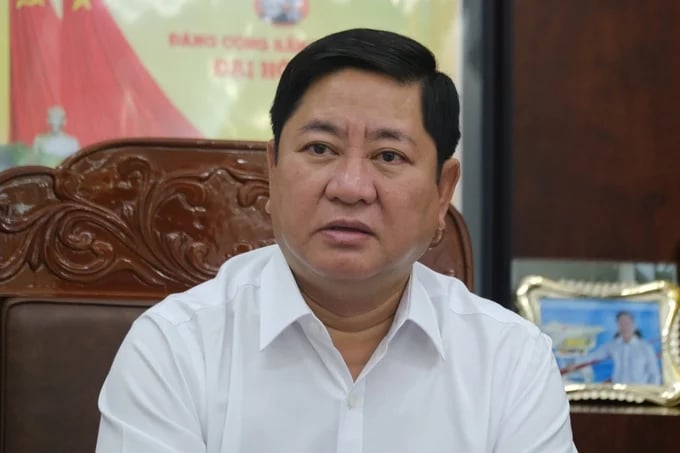
Mr. Tran Quoc Nam, Chairman of Ninh Thuan Provincial People's Committee, discussed marine farming with the Vietnam Agriculture News. Photo: Kien Trung.
After the Vietnam Agriculture Newspaper published a series of articles titled "1 marine farming license entangled with 6 ministries and branches," it received significant consensus from policymakers and administrators regarding the challenges and barriers to sustainable marine farming development.
The most formidable obstacle faced by Ninh Thuan, along with many other localities implementing marine farming projects, lies in the legal intricacies of marine spatial planning. Furthermore, the need for a comprehensive policy framework for deep-water marine farming from the government exacerbates the situation. Despite the desire of the populace, businesses, and the province to marine aquaculture, deep-water aquaculture projects have yet to be licensed due to this legal vacuum.
"To secure a license for a marine farming project, the province must seek input from at least six ministries: the Ministry of National Defense, the Ministry of Transport, the Ministry of Agriculture and Rural Development, the Ministry of Planning and Investment, the Ministry of Natural Resources and Environment, and the Ministry of Education. If even one ministry dissents, we face an impasse," shared the Chairman of Ninh Thuan Provincial People's Committee.
With a coastline stretching over 105km and a territorial sea exceeding 18,000 km2, Ninh Thuan has identified marine farming as a critical economic sector. In line with the government's marine farming project and the Ministry of Agriculture and Rural Development's action plan, Ninh Thuan province has, since 2022, issued an intention to implement the marine farming development project and delineate marine aquaculture areas.
"By 2030, Ninh Thuan province aims to have approximately 2,000 hectares of marine farming. However, given the current challenges and legal issues, I believe that Ninh Thuan and many other coastal areas engaged in marine farming will encounter difficulties and struggle to achieve the objectives set forth in the Marine Farming Project," remarked Mr. Tran Quoc Nam.
According to the Chairman of the People's Committee of Ninh Thuan province, in recent years, with the government's focus on marine aquaculture development, the Ministry of Agriculture and Rural Development has introduced several action programs, strategies, and national initiatives that have yielded positive results in fostering a sustainable seafood industry. However, the lack of comprehensive planning, policy mechanisms, and legal frameworks for marine aquaculture poses a significant bottleneck in the development of aquaculture overall, mainly marine aquaculture. This has led to a situation where marine farming largely occurs spontaneously, with each locality adopting its approach, resulting in inefficiency, unsustainability, and numerous consequences. Although Ninh Thuan province has endeavored to learn from the experiences of other regions and implement several marine farming projects, they have yet to be truly effective due to the incomplete legal foundation.
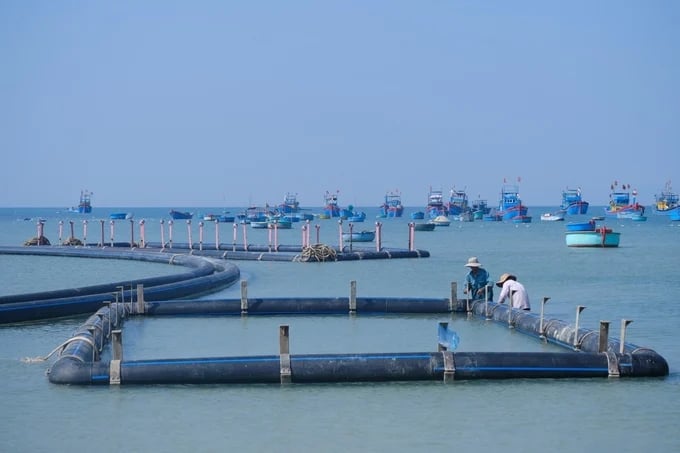
Ninh Thuan has substantial potential and advantages for marine farming but encounters numerous obstacles. Photo: Hoang Anh.
"The most significant deficiency and challenge lies in the absence of marine spatial planning," affirmed Mr. Tran Quoc Nam. Emphasizing the pivotal role of marine spatial planning, the Ninh Thuan Provincial People's Committee Chairman analyzed, "While we recognize the potential and advantages and have established specific goals and action strategies, a legal framework is sorely lacking. I firmly believe that establishing marine spatial planning is paramount to regional and provincial planning and other initiatives to establish a comprehensive legal framework for further endeavors. In essence, only through the implementation of marine planning, with a well-defined legal foundation and policy mechanisms aligned with the expectations of the public and investment community, can we seize the opportunity to harness the potential and ensure the sustainable development of the marine farming industry."
For instance, regional integration in implementing marine farming strategies is paramount. This is crucial because to foster a sustainable marine farming industry, each locality must not pursue isolated approaches but instead collaborate to establish a framework for regional connectivity. Through such collaboration, we can only harness the values and advantages of each locality, regional strengths, and even national assets.
Each province and region will be interconnected, building upon planning and specific policy mechanisms, laying a vital foundation for marine farming development. The potential and advantages of marine aquaculture in the South Central region are clear. Given the right conditions for its development, marine aquaculture will undoubtedly significantly contribute to the fisheries industry, fostering sustainable growth in the agricultural sector and bolstering the country's economic development.
Despite fervent efforts to attract investors over the past 3-4 years, tangible progress still needs to be made. Mr. Tran Quoc Nam, brimming with enthusiasm and optimism for marine farming, underscored its immense potential as an inevitable pathway for the sustainable development of each locality and the nation. He emphasized its capacity to uplift coastal fishermen and make substantial contributions towards the goal of prosperity derived from the sea.
After conducting a comprehensive review and planning of areas with inherent advantages and potential for marine farming, Ninh Thuan province is reassessing its policy mechanisms to attract investment and support. However, as articulated by the Chairman of Ninh Thuan Provincial People's Committee, all such policy mechanisms are contingent upon directives from the Central Government. The province is committed to implementing these directives as they are promulgated, adjusting its strategies accordingly.
"Along with other provinces endowed with marine farming advantages, we implore the Ministry of Agriculture and Rural Development and other relevant ministries and agencies to advocate for a specialized government program dedicated to marine farming. This program should address the issue of local plan declarations for marine farming. Despite the proactive efforts of localities to attract investors, the current fragmented and spontaneous approach is unsustainable. Despite earnest invitations for investment, businesses invited by the province over the past 3-4 years, possessing genuine capacity, enthusiasm, and aspirations, have been unable to proceed due to regulatory hurdles," Mr. Tran Quoc Nam shared.
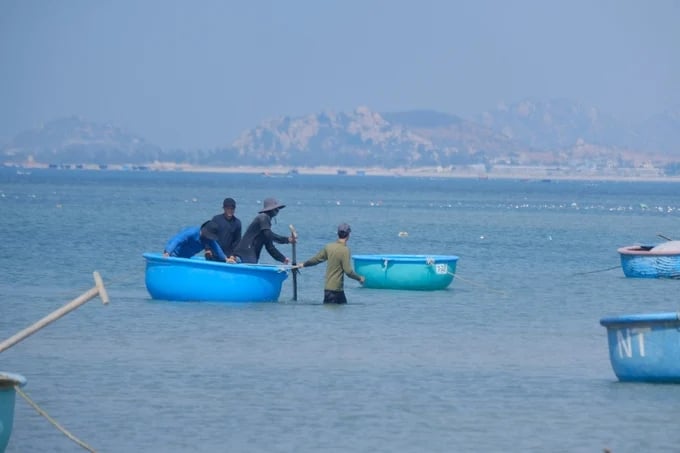
The Chairman of Ninh Thuan Province advocates for the expeditious implementation of marine spatial planning to improve livelihoods. Photo: Kien Trung.
Ninh Thuan's objective is to establish offshore industrial parks, a strategic direction that may need proper planning and policy support. With timely action, investors can commit long-term investments, exacerbating challenges related to banking credit, infrastructure development, fisheries logistics, seed research, technology, and environmental concerns.
"I firmly believe that opportunities are fleeting and must be seized. With the inherent potential, advantages, and eagerness to foster the marine farming industry, Vietnam can emulate the success of advanced nations if robust policy mechanisms and regulations are established. The most pressing issue is the swift submission of marine spatial planning to the Government and National Assembly for approval. This will enable Provincial People's Committees to streamline the licensing process for investors, eliminating the cumbersome procedure involving multiple ministries and branches," the Chairman of Ninh Thuan Province emphasized.
Addressing shortcomings in policy and implementation is crucial. Chairman Cao Tuong Huy of Quang Ninh Provincial People's Committee emphasized Quang Ninh's vast potential for marine economic development, particularly in mariculture. With a sea area exceeding 6,000 km2 and an aquaculture area surpassing 45,000 hectares, accounting for over 15% of the national marine aquaculture area, Quang Ninh is poised to make significant strides in marine aquaculture. Leveraging its strategic geopolitical and geo-economic position and a well-connected transportation network via road, air, and sea, Quang Ninh is well-positioned to capitalize on opportunities in the marine economy, including marine farming.

Mr. Cao Tuong Huy, Chairman of Quang Ninh Provincial People's Committee. Photo: Hoang Anh.
Following the approval of Quang Ninh province's planning by the Prime Minister, designating Quang Ninh as the fisheries center of the North, the province has formulated a comprehensive strategy, resolutions, and policies to advance marine economic development and marine farming. Notably, the approval of farming area planning across all provincial coastal localities has established a crucial legal framework to attract investment. Additionally, Quang Ninh has enacted policy mechanisms to entice investment in marine farming, particularly attracting foreign investors equipped with cutting-edge global science and technology for marine farming ventures.
Recognizing the pivotal role of investment attraction, Quang Ninh province has prioritized planning suitable areas for mollusk and aquatic product farming. Efforts have been directed towards administrative reforms to streamline investment procedures and expedite compensation and site clearance processes to provide optimal conditions for investors to access land. Moreover, Quang Ninh collaborates with universities and research institutions to cultivate a skilled workforce tailored to the needs of marine farming enterprises in the province.
One significant avenue for attracting investment in marine farming in Quang Ninh lies in the Chinese market. Given its substantial seafood consumption market, the province has actively sought to bolster trade ties with China, benefiting both Quang Ninh and Vietnam as a whole.
Addressing prevailing difficulties and obstacles, Chairman Cao Tuong Huy revealed that existing legal regulations concerning maritime affairs, notably the Fisheries Law, must be revised. Of particular concern for Quang Ninh is the issue of sea delivery beyond the 6-nautical mile range, prompting the province to advocate for adjustments from the Government, the Ministry of Natural Resources and Environment, and Ministry of Agriculture and Rural Development in the near future.
"Quang Ninh's paramount objective is to create the most conducive environment for maritime activities for the populace and business community, fostering the sustainable development of the marine farming industry," Mr. Cao Tuong Huy affirmed.
Translated by Quynh Chi
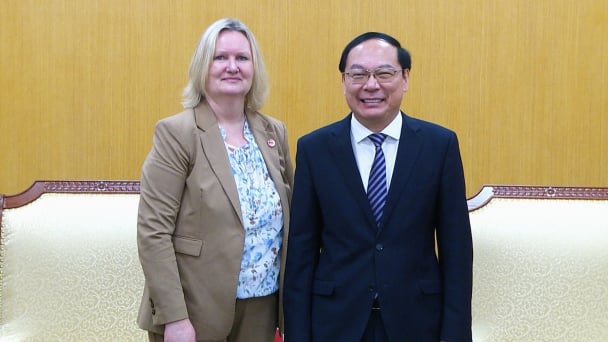
(VAN) On April 16, Vietnam Deputy Minister of Agriculture and Environment Le Cong Thanh welcomed and worked with State Secretary for Trade & Global Sustainability at the Danish Ministry of Foreign Affairs Lina Gandlose Hansen.

(VAN) Japan and Vietnam will strengthen their capacities in early disaster warning, resource circulation, and the effective, sustainable management of electronic waste.

(VAN) This was affirmed by the Director-General of the Global Green Growth Institute (GGGI) during a working session with Deputy Minister of Agriculture and Environment Le Cong Thanh.
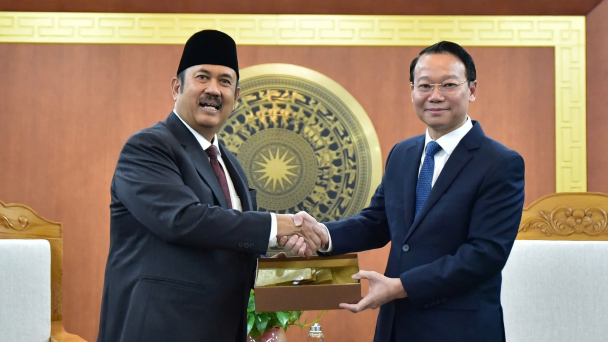
(VAN) On April 16, Minister of Agriculture and Environment of Vietnam Do Duc Duy received Minister of National Planning and Development of Indonesia Rachmat Pambudy.
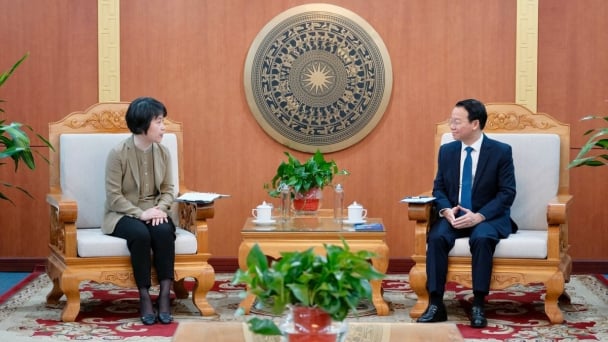
(VAN) China’s Ministry of Ecology and Environment shares its journey of transitioning energy and monitoring air pollution to keep Beijing’s skies blue.
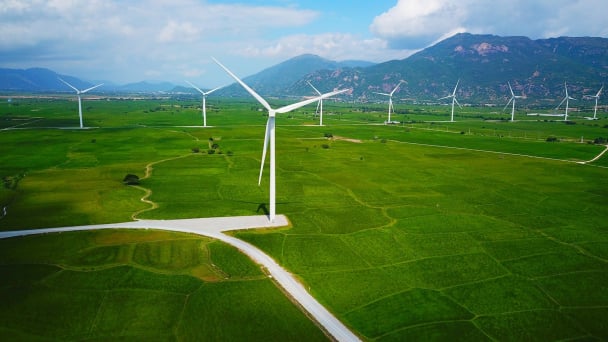
(VAN) The strategic directions of the Party and State are creating a favorable foundation to promote a wave of creative entrepreneurship in the fields of green technology.
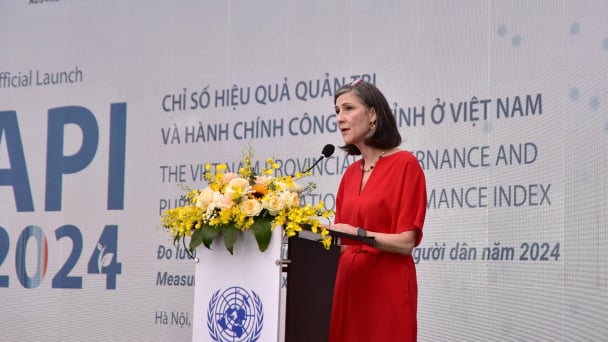
(VAN) The 2024 PAPI Index suggests an evidence-based roadmap aimed at enhancing public governance effectiveness with a citizen-centered approach.